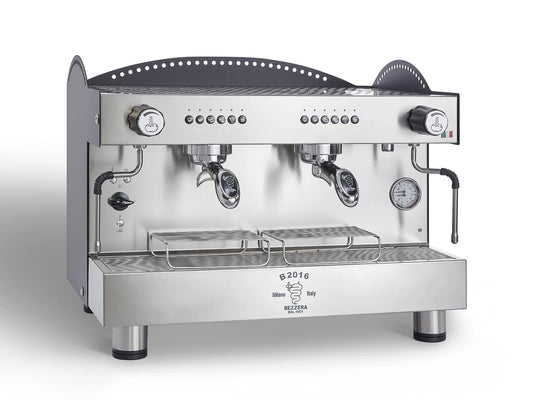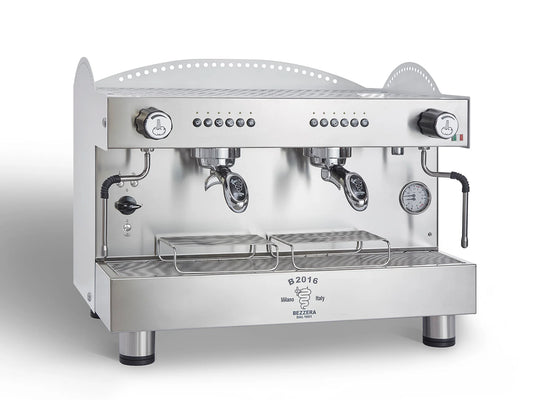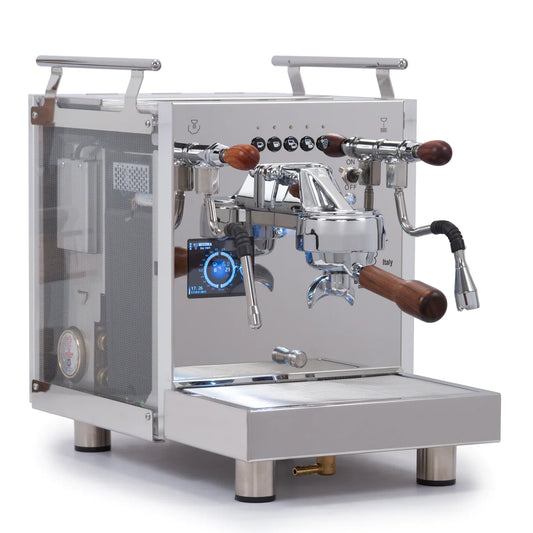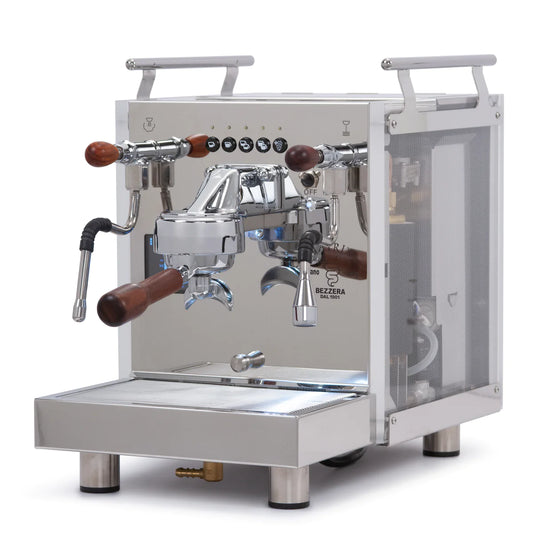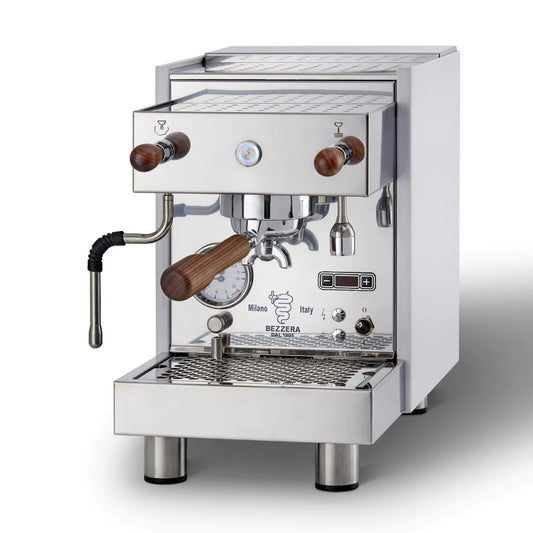Global Coffee Culture: A Journey Through Tradition, Ritual, and Connection
Table of Contents
- Key Highlights:
- Introduction
- Ethiopia: The Sacred Coffee Ceremony
- Japan: Scientific Precision Meets Art
- Sweden: Fika – The Mandatory Coffee Break
- Turkey: Fortune Telling in Every Cup
- Italy: Standing Room Only
- South Korea: Iced Americanos and Animal Cafes
- Vietnam: Coffee as Dessert
- Australia: The Flat White Revolution
- Greece: Cold Coffee Obsession
- Mexico: Café de Olla’s Warming Embrace
- The Cultural Thread That Binds Us All
Key Highlights:
- Coffee transcends mere consumption; it serves as a vehicle for cultural connection and personal rituals across different societies.
- Each country's coffee culture includes unique methods of preparation and consumption, from Ethiopia's sacred ceremonies to Japan's precise brewing artistry.
- The social fabric woven through coffee traditions highlights their role in fostering community, intimacy, and connection.
Introduction
Coffee, often regarded as a simple morning stimulant, is so much more than a mere beverage. Its rich history and cultural significance weave a complex tapestry that reflects the values, traditions, and social norms of countries around the globe. From the heart of Ethiopia, where the iconic coffee ceremony symbolizes communal bonding, to Japan, where brewing techniques mirror scientific precision, coffee cultures present a captivating snapshot of diverse societies.
This article explores coffee rituals from various countries, examining how these practices shape identities and foster connections among people. By understanding the multifaceted experiences surrounding coffee, we gain insight into the cultural narratives that enrich our daily lives and bring us closer together.
Ethiopia: The Sacred Coffee Ceremony
The journey of coffee begins in Ethiopia, the birthplace of Arabica beans and a crucial producer of this beloved beverage. Here, the coffee ceremony is far more than function; it is a profound cultural ritual that cements community ties and fosters shared experiences.
During the ceremony, green coffee beans are roasted over an open flame, unleashing an aromatic bounty that captivates everyone present. The beans are then ground using a traditional wooden mortar and pestle, called a Mukecha, before being brewed in a jebena, a clay pot renowned for its distinctive shape.
The ritual unfolds in three rounds: the first brew, known as awel, means “to wake up”; the second, kale’i, is “to be enlightened”; and the third, baraka, or “to be blessed,” serves as a heartfelt conclusion to the gathering. Through this process, participants are not just consuming coffee; they are engaging in a spiritual journey that reinforces friendships and familial bonds.
Ethiopia's coffee industry also plays a pivotal economic role. Recent reports indicate a surge in coffee exports, generating significant revenue compared to previous years. The unique combination of cultural significance and economic impact places Ethiopia at the forefront of the global coffee narrative.
Japan: Scientific Precision Meets Art
In Japan, coffee culture has evolved into a symbiotic relationship between art and science. The siphon coffee method, revered for its precise brewing technique, illustrates this sophistication beautifully. For over a century, the siphon coffee maker has captivated coffee enthusiasts with its ability to extract complex flavors through a method resembling a laboratory experiment.
The siphoning technique involves a mesmerizing interplay of physics and artistry. Water in the lower chamber heats up and expands, creating pressure that forces it up into the upper chamber where it mixes with the coffee grounds. This immersive brewing experience is not simply about the coffee itself; it's about the journey, the sensory delights, and the patience embodied in the process.
Japan's coffee artisans, known as takumi, embody this tradition of excellence. Much like the Japanese tea ceremony, siphon brewing has transformed into a ritual that values precision and presentation. This meticulous approach enhances the overall experience, creating a moment of tranquility in a fast-paced world.
Sweden: Fika – The Mandatory Coffee Break
Sweden’s coffee culture revolves around the concept of “fika,” a term that encapsulates the act of taking a break to enjoy coffee, chats, and usually, something sweet. It is an essential social ritual that extends far beyond coffee consumption.
Fika is not simply about sipping coffee quickly; it promotes taking time to connect with coworkers, friends, and family. Many companies have even made these breaks mandatory, recognizing their role in fostering teamwork and improving productivity. Sweden boasts the world’s highest coffee consumption rate, with an impressive average of 3.77 cups per person per day.
The practice has been credited with contributing to the high happiness ratings reported in Nordic countries. In a society that values personal connections, coffee breaks transform workspaces into communal environments where relationships flourish. This concept of slowing down to appreciate these moments exemplifies how coffee can foster well-being and social cohesion.
Turkey: Fortune Telling in Every Cup
In Turkey, coffee is steeped in tradition, mysticism, and social rituals. Turkish coffee, distinguished by its unique preparation method, was inscribed on UNESCO’s Intangible Cultural Heritage List in 2013. This distinction underscores the cultural importance of brewing and consuming coffee in Turkey.
Preparation begins with finely grinding coffee beans and boiling them with water in a cezi, a special pot. Turkish coffee is served unfiltered in small cups, often accompanied by sweet treats like Turkish delights. However, the experience doesn’t end with consumption; it unfolds further as leftover grounds form shapes in the cup, allowing the practice of tasseography, or fortune-telling.
The art of reading coffee grounds intertwines with cultural rituals, especially in traditional engagements, where prospective brides serve coffee to potential in-laws as a gesture of hospitality and respect. This blend of coffee and mysticism creates a deeper narrative about the connections forged through this beloved beverage.
Italy: Standing Room Only
Italy's coffee culture epitomizes speed and social connection. Unlike other countries, Italian coffee consumption emphasizes quality and efficiency, where a quick espresso shot enjoyed at the bar prevails over lingering leisure.
Italians typically avoid milk in their coffee after breakfast hours, as they believe it disrupts digestion. This cultural norm reinforces the importance of following traditional practices, with cappuccinos served only in the morning. Standing at an espresso bar is a quintessential Italian experience, where locals engage in lively conversations while savoring their coffee.
Espresso preparation relies on forcing hot water through finely-ground coffee, yielding a thick, rich brew crowned with a creamy layer known as crema. The Italian approach centers on connecting people, rapid consumption, and uncomplicated enjoyment—thus portraying coffee as a catalyst for relationships.
South Korea: Iced Americanos and Animal Cafes
In South Korea, coffee culture reflects contemporary trends that cater to a tech-savvy and social media-oriented society. The iced Americano has emerged as a popular beverage, maintaining a low-calorie profile while providing a refreshing energy boost.
South Korea has also gained notoriety for its themed cafes, including animal cafes featuring adorable creatures like raccoons and sheep, creating Instagrammable moments that delight modern coffee lovers. These spaces evolve around interactive experiences, merging coffee enjoyment with innovative presentation.
Moreover, South Korean coffee culture thrives online, as evident in trends like the convenience store coffee pouch, going viral on social platforms. This digital influence signifies how contemporary settings shape traditional coffee culture, allowing it to adapt to faster lifestyles while maintaining its social significance.
Vietnam: Coffee as Dessert
Vietnamese coffee culture takes indulgence to new heights with its unique application of condensed milk. The popular cà phê sữa đá (iced coffee) combines robust drip coffee with the sweetness of condensed milk, creating a rich, dessert-like beverage that excites the palate.
The French influence remains palpable in Vietnamese coffee practices, leading to a robust culture of careful preparation and premium quality. The country's coffee is synonymous with leisurely social experiences, often enjoyed at bustling street-side cafes in a vibrant atmosphere.
Drinking Vietnamese coffee is less about finishing a cup as quickly as possible and more about savoring each luxurious sip. This indulgent, community-centered approach distinguishes Vietnamese coffee culture in the global landscape.
Australia: The Flat White Revolution
Australia, particularly Melbourne, has emerged as a trendy coffee destination, giving birth to the flat white—an iconic drink characterized by velvety steamed milk and a rich espresso base.
Melbourne's coffee scene thrives on a culture that blends traditional methods with contemporary innovation. Cafés in the city emphasize quality and attention to detail, making coffee a significant part of daily life rather than just a mere routine.
The flat white has transcended its origins to gain international acclaim, showing how regional specialties can influence global coffee preferences. More than a drink, Melbourne's café culture embodies a lifestyle of relaxation, socialization, and appreciation of excellent food and coffee.
Greece: Cold Coffee Obsession
Greek coffee culture diverges from its European counterparts with a strong focus on cold coffee, especially during the warm summers. The frappé, made from instant coffee, ice, and sugar, captures the essence of leisurely winter afternoons.
The freddo cappuccino and freddo espresso represent modern adaptations that incorporate fresh espresso into refreshing cold beverages. Greek coffee rituals highlight the pleasure of lounging at cafés for hours, where conversation flows alongside the coffee.
This unhurried pace emphasizes social connections and reinforces the Mediterranean way of life, making it ideal for long discussions and shared moments over a cup of coffee.
Mexico: Café de Olla’s Warming Embrace
Mexico’s coffee culture embodies warmth and comfort through its traditional brew: Café de Olla. This spiced coffee combines freshly ground beans with cinnamon and piloncillo, creating a beverage that is as much about the preparation as it is about enjoyment.
Brewed in earthenware pots that signify tradition, Café de Olla resonates deeply with the Mexican family ethos, where flavor and comfort intertwine. Its rich and aromatic profile is a testament to the power of food to evoke memories, comfort, and connection.
In Mexican households, coffee symbolizes more than just caffeine; it represents familial gatherings, harkening back to ancestral roots and rituals passed down through generations.
The Cultural Thread That Binds Us All
Exploring these unique coffee cultures reveals profound insights about human connections, rituals, and shared experiences. Coffee is more than a drink; it acts as a universal language that transcends borders, uniting people from different backgrounds.
From the intimate sharing of Ethiopian ceremonies to the precision of Japanese siphon brewing, each culture has found ways to slow down, connect, and savor life's moments over a cup of coffee. As we navigate a busy world, these traditions inspire us to prioritize relationships, mindfulness, and personal connections.
Ultimately, the cultures surrounding coffee highlight that the most memorable experiences are not solely about the beverage but about the people with whom we enjoy it. With each cup shared, we nurture the bonds that connect us, finding joy and meaning that resonate beyond just caffeine—reminding us that sometimes, the best part of coffee culture lies in the shared moments that bind us together.
FAQ
Why is coffee culture important in various countries?
Coffee culture reflects the unique social norms, traditions, and values of each country. It fosters community connections, encourages social interaction, and allows individuals to engage in meaningful rituals that enrich daily life.
How does coffee preparation differ across cultures?
Each country has distinct methods of preparing and enjoying coffee that align with local traditions. For example, Ethiopian coffee ceremonies focus on communal ritual and spiritual significance, while Japanese siphon brewing emphasizes precision and artistry.
What role does sustainability play in modern coffee culture?
Sustainability has become increasingly important to coffee lovers worldwide. Many coffee-growing countries emphasize ethical sourcing practices, environmental impact, and fair trade. This awareness enhances the appreciation of coffee as not just a product but a collective responsibility.
How has coffee culture evolved with social media influence?
Social media has significantly shaped contemporary coffee culture, particularly in places like South Korea where trends spread quickly through platforms like TikTok. This digital shift highlights the importance of presentation and unique experiences that engage a broader audience.
Can coffee culture impact happiness levels?
Countries with vibrant coffee cultures, such as Sweden and Finland, often report high levels of happiness and well-being. Taking time for coffee breaks encourages social connections, reduces stress, and enhances workplace dynamics, positively influencing overall life satisfaction.

